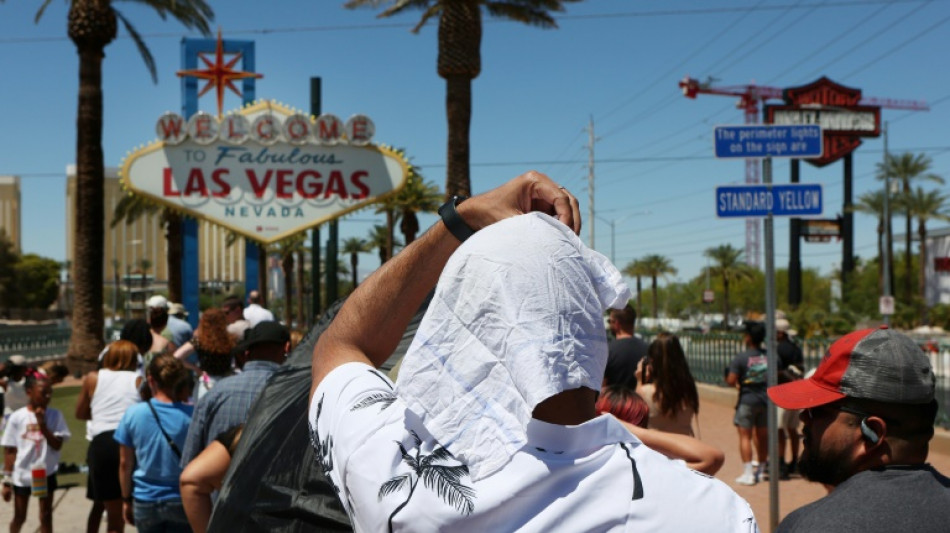'Hot and dangerous weekend': US bakes under relentless heat dome / Photo: Ronda Churchill - AFP/File
Brutally high temperatures threatened tens of millions of Americans Saturday, as numerous cities braced to break records under a relentless heat dome that has baked parts of the country all week.
The National Weather Service warned of an "extremely hot and dangerous weekend," with daytime highs routinely ranging between 10 and 20 degrees Fahrenheit above normal in the American West.
Residents of central and southern California, for example, could expect to see thermometers peaking at 100 to 110 degrees Fahrenheit (38 to 43 degrees Celsius), it said.
The heat is forecast to remain anchored over the West for the weekend, "growing hotter in the South by early next week."
Authorities have been sounding the alarm for days, advising people to avoid outdoor activities in the daytime and to be on the watch for signs of dehydration, which can quickly become fatal in such temperatures.
In the hardest-hit areas, residents face a daily endurance marathon against the sun.
The Arizona state capital of Phoenix has recorded 15 straight days above 109 degrees Fahrenheit (43 degrees Celsius), with Saturday expected to reach well above that mark.
In Houston, residents have been asked to begin conserving energy from 2:00 to 10:00 pm Saturday through Monday, in an attempt by provider Reliant Energy to mitigate high demand.
One local news station in the city, KPRC, heralded the prospect of "finally seeing an end to this heat wave" -- but only by "Sunday of next week."
Heat waves are occurring more often and more intensely in major cities across the United States, according to the federal Environmental Protection Agency, with a frequency of six per year during the 2010s and 2020s compared to two per year during the 1960s.
California's famous Death Valley, one of the hottest places on Earth, is also likely to reach new peaks on Sunday, with the mercury possibly rising to 130 Fahrenheit (54 Celsius).
Smoke from wildfires in western Canada, meanwhile, was creating unhealthy air quality conditions in parts of the upper-central United States -- similar to episodes in June when blazes in the Canadian province of Quebec cloaked the US East Coast in a noxious haze.
While it can be hard to attribute a particular weather event to climate change, scientists insist that global warming -- linked to humanity's dependence on fossil fuels -- is responsible for the multiplication and intensification of heat waves in the world.
The US heatwave comes after the EU's climate monitoring service said the world saw its hottest June on record last month.
A.Krishnamurthy--BD
